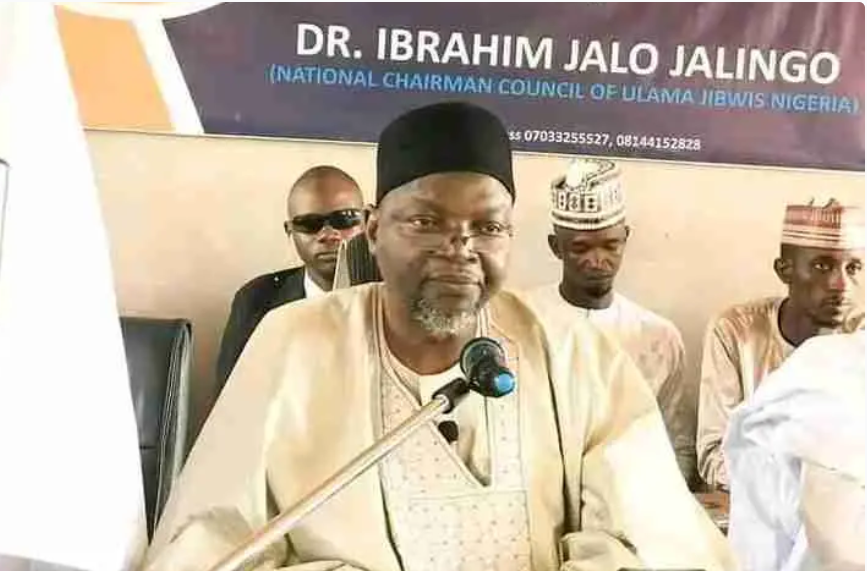News
Islamic Cleric Dr. Ibrahim Jalingo Endorses Death Penalty for Religious Renunciation

In a statement that has sparked widespread controversy, prominent Islamic cleric and National Chairman of the Council of Ulama, Dr. Ibrahim Jalingo, publicly endorsed the death penalty for individuals who renounce their religion. The comments were made during a religious gathering earlier this week, drawing immediate attention from both religious and human rights communities across Nigeria and beyond.
Dr. Jalingo, who holds significant influence in religious circles, justified his stance by citing Islamic legal principles. According to him, apostasy — the act of abandoning one’s faith — is a grave offense in Islam and should be met with the highest level of punishment. He argued that religious laws must be upheld strictly to preserve the sanctity and discipline within the Islamic faith.
His statement comes at a time when debates about religious freedom and human rights continue to dominate national and global discussions. The cleric emphasized that his call for capital punishment applies only to Muslims who willingly renounce Islam, and he stressed that such rulings are derived from traditional interpretations of Sharia law.
This endorsement has drawn swift backlash from civil rights groups, legal experts, and interfaith organizations. Many have condemned Dr. Jalingo’s comments as a threat to religious liberty and human dignity. Critics argue that advocating the death penalty for religious conversion violates fundamental human rights enshrined in both Nigerian law and international treaties.
Prominent human rights organizations have called for an investigation into Dr. Jalingo’s statements. Some legal experts have warned that promoting such measures may constitute incitement to violence or hate speech under Nigerian criminal law. Others have urged government authorities to distance themselves from religious rhetoric that undermines constitutional freedoms.
Religious scholars are also divided on the issue. While some traditionalists support Jalingo’s interpretation, many modern Islamic thinkers argue that such punitive measures are outdated and not supported by the broader message of peace in Islam. They point to the Quran’s emphasis on free will and the absence of compulsion in matters of faith.
Government officials have so far remained largely silent, although a few lawmakers have expressed concern over the potential social consequences of such pronouncements. One member of the National Assembly, speaking anonymously, said the statement could further inflame tensions in an already religiously sensitive country.
Nigeria, which has a constitution that guarantees freedom of religion, has long wrestled with the balance between religious laws and civil rights. The northern part of the country, where Sharia law operates alongside secular legal systems in some states, has frequently been a flashpoint for controversies involving religious doctrines.
International observers have also taken note. Human rights organizations such as Amnesty International and Human Rights Watch have expressed alarm over the endorsement. They reiterated that the death penalty for religious renunciation contradicts universally recognized human rights standards, including the Universal Declaration of Human Rights and the International Covenant on Civil and Political Rights.
Religious freedom remains a highly sensitive issue in Nigeria, where interfaith tensions have led to violence in the past. Analysts warn that such public statements from influential clerics risk deepening societal divisions and encouraging extremist interpretations of faith.
While Dr. Jalingo has not retracted his comments, calls for accountability are growing louder. As the debate continues, many Nigerians are watching closely to see whether the government will take action or remain silent in the face of growing criticism.
